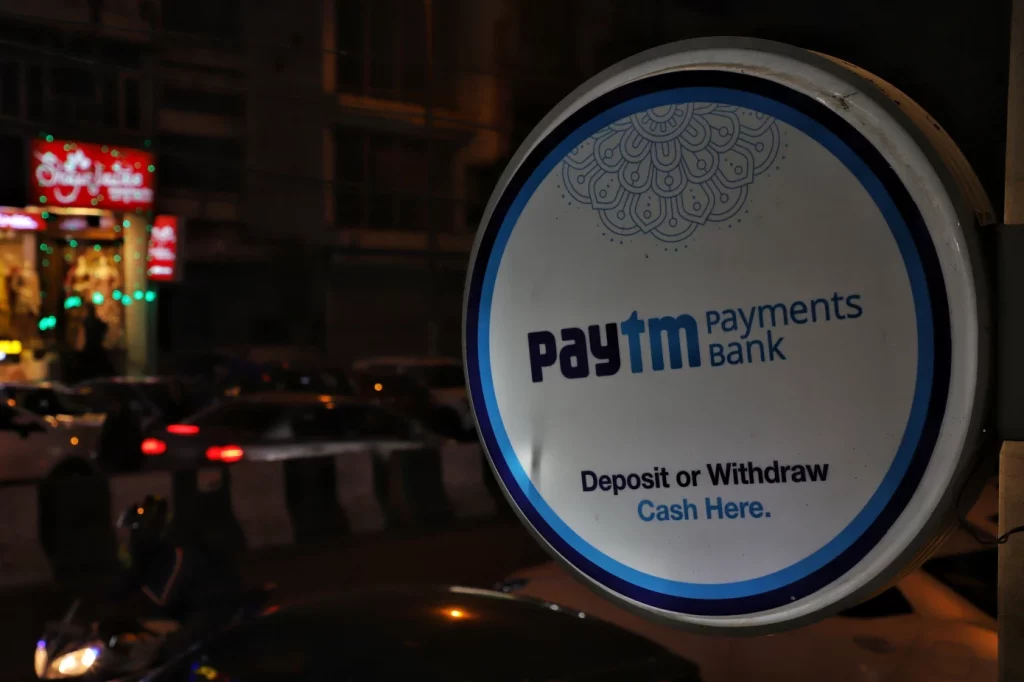Paytm, a leading Indian digital payments firm, recently encountered a significant regulatory challenge that led to a sharp decline in its market value. The Reserve Bank of India (RBI) has directed Paytm Payments Bank to stop onboarding new customers and halt accepting fresh deposits, sparking concerns over the company’s future profitability and its expansive app ecosystem.
Paytm’s stock price dipped by a whopping 20% after this news
This move by the RBI, which follows a history of non-compliance issues including customer due diligence and technology infrastructure, has cast a shadow over Paytm’s operations. The immediate effect was a 20% plummet in Paytm’s stock price, wiping out approximately $1.2 billion in market value and bringing the shares to a six-week low. This drastic drop indicates the general gravity of regulatory challenges and their impact on investor confidence. When it happens, there’s a big blow to the companies involved.

Paytm’s response to the situation has been one of cautious optimism. CEO Vijay Shekhar Sharma described the RBI’s order as a temporary setback and outlined plans to forge new banking partnerships to ensure the continuity of its services. This strategic pivot aims to mitigate the repercussions on Paytm’s wallet accounts, essential to its payment and financial services ecosystem.
The broader implications of the RBI’s scrutiny are significant. Analysts speculate on the potential hesitancy of banking and financial partners to engage with Paytm, given the regulatory concerns. This situation places additional pressure on Paytm to address compliance issues swiftly and effectively to restore trust among its partners and customers.
RELATED:
- Paytm launches “Card Soundbox” to make card payments easier for merchants
- Paytm Pocket Soundbox and Music Soundbox payment devices launched in India
- Unlock Savings: Discount on Every Giztop Product under the New Year Sale
- Best of CES 2024 – Products that stood out this year!
(Via)







